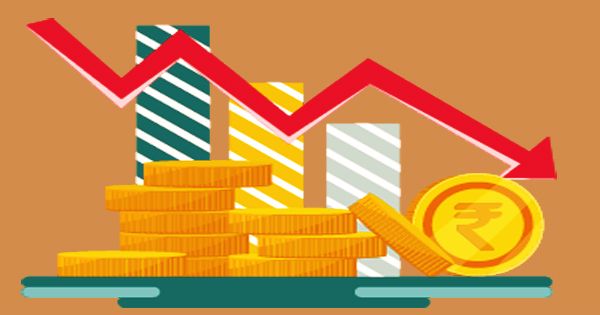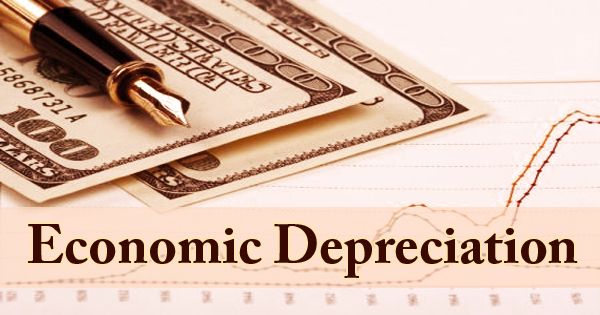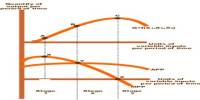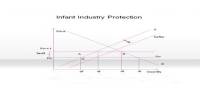In economics, depreciation is the gradual minimize in the economic price of the capital stock of a firm, state, or different entity, both through bodily depreciation, obsolescence, or adjustments in the demand for the services of the capital in question. Economic depreciation is a measure of the decline in an asset’s market value over time as a consequence of significant economic factors. It can also apply to fixed capital consumption for the purpose of estimating national accounts. This type of depreciation typically refers to real estate, which may lose value for a variety of reasons, such as the addition of unfavorable structures in close proximity to a house, road restrictions, a drop in a neighborhood’s quality, or other negative factors.
Economic depreciation is truly described as the put on and tear of an asset past its anticipated capability or utility which skill that believes we have an asset and we predicted the depreciation run to go for 4 years but it becomes obsolete and scraps in a span of solely three years it is said to be economically depreciated. It’s distinct from depreciation in accounting. In accounting depreciation, an asset, based on a fixed schedule, is expensed over a specific period of time.

(Economic Depreciation)
The equation of capital accumulation ties current stocks of capital to potential stocks of capital. Either proportional depreciation or constant depreciation is included in the equation for capital accumulation. If the capital stock is Kt in one-time t, it is gross (total investment expenditure on newly generated capital and depreciation is Dt, Kt + 1 is Kt + It – Dt the capital stock in the next period. The net increment to the capital inventory is the distinction between gross funding and depreciation and is called internet investment.
Economic depreciation is a calculation of the amount of value that an asset loses as a result of powerful factors impacting its market value. Economic depreciation over accounting depreciation should be more closely viewed by asset owners as they want to sell an asset at its market value. When it comes to accounting for enterprise needs, accountants will never record financial depreciation in their books of bills or financial statements for big capital assets.
Causes of Economic Depreciation –
- Wear and tear: It is difficult to save assets from wear and tear with the passing of time and this becomes a necessary connection to any asset. Thus, when we need to sell it again the drop in the physical quality of the asset is related to the market value, and this occurs by depreciating the asset’s financial or monetary value and paying for it in the depreciation mode.
- New technology replacing old technology: Because fast technological adjustments occur, current science turns old-fashioned and is changed with the aid of greater environment-friendly technology. This leads to depreciation in the value of an out of date technological know-how asset.
- Perishability: Some properties, such as work on advanced assets, such as raw materials or inventory, etc., will deteriorate over a period of time. In order to account for the resulting decrease in their worth, such assets are subject to depreciation.
- Expiration of rights: Intangible belongings such as software, license, patents, trademarks, etc. are valid through a span of time, the quantity of time for which the rights for the equal are shrunk for. Intangible property wants to be depreciated earlier than the rights expire. Depreciation is called amortization for intangible assets. Intangibles are amortized over time in such a way that the value of the intangibles is measured as zero when the rights expire.
Economic depreciation affects the selling price of an asset in the market. It may be observed and tracked with the aid of asset owners. One of the keys areas where financial depreciation is viewed for monetary analysis is in the field of actual estate. If the analyst needs to estimate how much revenue the product or service can produce in the future, it may also act as a need for forecasting methodology. The value decreases of an asset are not inherently universal or anticipated with economic depreciation, but rather dependent on powerful economic factors.
Depreciation can alternatively be measured as the trade in the market cost of capital over a given period: the market charge of the capital at the opening of the period minus its market rate at the top of the period. Financial analysts can also additionally consider financial depreciation when forecasting future projections and cash flows. Generally, a business is not concerned with market influences or impacts on its assets but is more concerned about how the market affects its liquidity position. In these cases, the economic depreciation will be centered on a reduction in the value of revenues anticipated from goods or services as a result of adverse economic influences.
Information Sources:
















